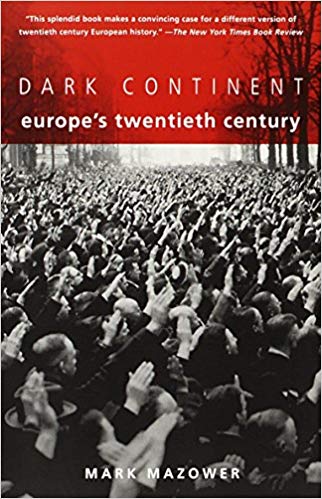A Look Back to Shape the Way Forward in 21st Century Europe
Europe today faces multiple crises, such as Brexit, the Turkish challenge, changes in U.S. policies, the Russian seizure of Crimea and the European Union in flux.
What will the next phase of European development be in dealing with these crisis?
One way to clear the ground for answering this question is to look back on European history in the 20th century through the post-Cold War period and to put the successes and failures into context. Mark Mazower does so in hi book Dark Continent: Europe’s Twentieth Century.
In his book, he addresses the popular belief that Europe was always meant to be a liberal democracy by the 21st century as doubtful.
He identifies two alternatives to liberal democracy (fascism and communism) as having been contenders for Europe’s central political system throughout the 20th century.
As he goes through a detailed history of Europe, there is one clear theme to extract from every chapter: the importance of death in Europe’s twentieth century history and how it plays into Europe’s narrative today. Europe’s history is not an easy one and not one that is to be taken lightly, especially when faced with facts such as: forty million Europeans dying in World War II alone.
Mazower does an extraordinary job at outlining the different political ambitions presented at every stage of European history, creating new politicians with every generation “each of whom aspired to remake Europe” leading to something he calls “ideological exhaustion”(397).
Mazower argues that Europeans no longer believe in politics but rather hold faith in Democracy due to 1) allowing capitalism to flourish and 2) its stability. Democracy allows every voice and every extreme to be heard- giving peace of mind to the violence that has haunted so many Europeans and still does to this day.
Mazower’s book, published in 1998, even though more than twenty years old, still holds lessons applicable to the Europe of today. He concludes very strongly with the idea that in order for Europe to remain strong and stable, it must accomplish two things.
The first is accepting the fact that “with the end of the Cold War, Europe’s place in history changed”(395) and Europeans have to be okay with accepting a “more modest place in the world” (403) since it no longer occupies a central role in global affairs.
The second ‘accomplishment’ is giving up Europeans’ “desperate desire to find a single workable definition of themselves”. (403)
There is no doubt that Europe is important but is an overly ambitious Europe one that will lead to its demise?
Mazower gives the reader food for thought on this pressing issue as Europe deals with or not the challenges facing it.

